This week, more than a thousand academics will gather in St. Louis for the Organization of American Historians meeting. Sadly, I won’t be at the OAH (have fun, everyone!) but I will be attending several conferences in the summer and fall. I’ll go to panels (fewer than I should); I’ll go to committee meetings; I’ll have drinks at the bar (more than I should). And I will wear my conference badge, that classic signifier of belonging and exclusion.
The badge will note my name, of course. But what about the space below, which is traditionally reserved for one’s “affiliation”: the school at which you study or teach, or the publisher, library, or museum at which you work. I have left the professoriate and yet continue to participate and engage in the academic world, so this blank space brings up some interesting questions about self-identification.
Historian, blogger, and podcaster Liz Covart has recently discussed how labels affect those who have one foot in and one foot out of academia. Affiliation and rank convey status, she argues, and they can alienate even the most cordial of colleagues.
Most of my colleagues probably think of me as an “independent scholar”; I bristle at that designation, mostly because it smacks of trust funds and dilettantism. But I also dislike it because like “alt-ac” and “post-ac,” this term takes academia as its primary reference point. And so it emphasizes marginalization rather than inclusion in the academic world.
Most often, I choose to identify myself as a “writer and historian.” I’m happy with these terms, and think that they accurately convey what I now do, and who I am.
So what if at our next conference, academics identify themselves in ways other than affiliation, and use that space to say a little more about who we are, as people? Here are some options.
Field of specialty and approach. Not super-exciting, but more of a conversation starter than “Eastern Poughkeepsie State,” I imagine.
Academic lineage, a la Game of Thrones. Everyone always asks anyway (which I find bizarre when you’re 15 years out of graduate school), so you might as well cop to it.
Authorial achievements. Just don’t list book reviews – nobody cares.
Astrological sign. You may scoff, but I think we can all agree that zodiac characteristics can be eerily accurate.
Admitted weaknesses. Everyone can bond over these as the hotel bar; and as a bonus, you won’t have to go to your therapist this week.
Open Secrets. The conference badge that speaks the truth.
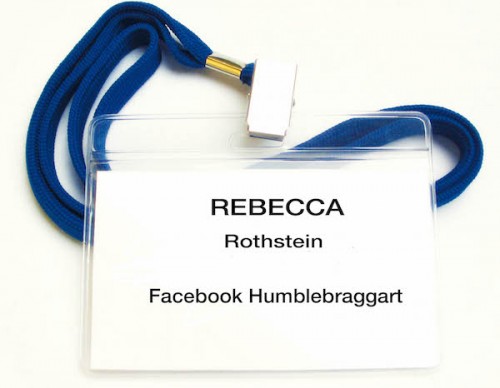
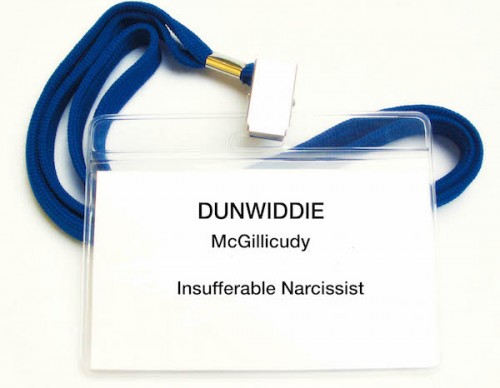
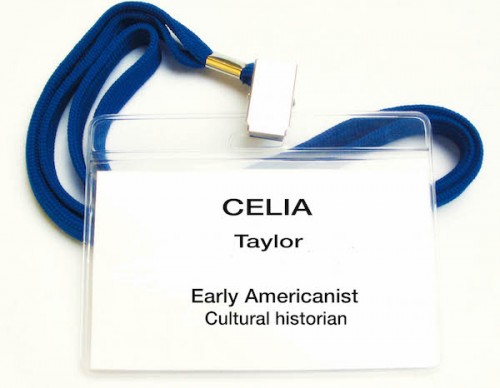
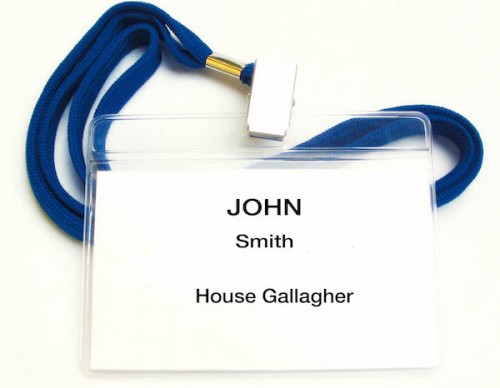
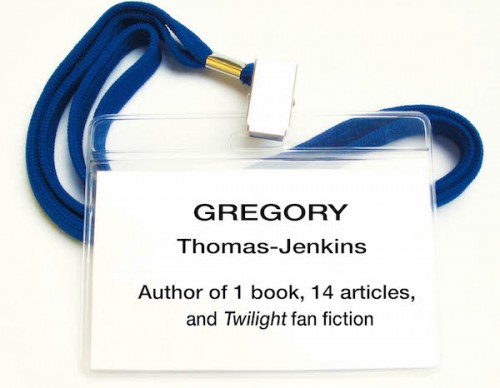
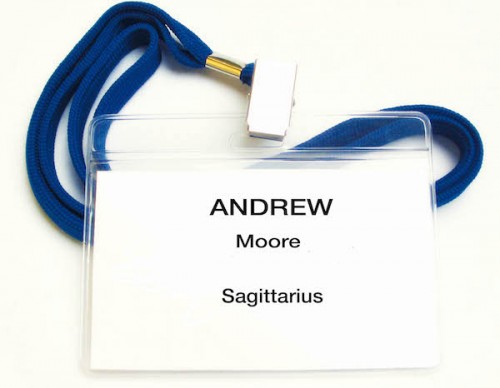
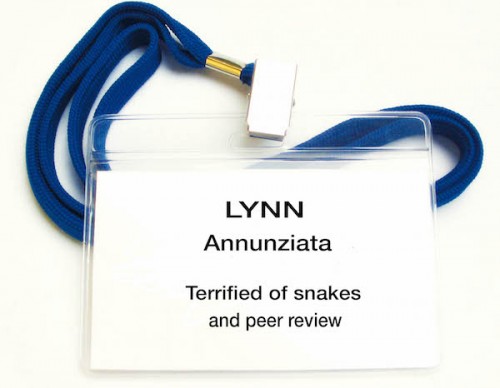
Brilliant! Like Keith Harris, I never wear mine but I might if we could #.
At the AHA I refuse to wear a badge except to get into the book exhibit. The culture of mid-height staring is way too unsettling – admittedly, perhaps, the one weekend a year I experience what it’s like to be a woman.
On the other hand, I remember a great story from the novelist Allan Gurganus, who was Eudora Welty’s “walker” for some fancy reception in her honor, and they missed half the reception because – despite the fact that everyone in room knew who she was – she insisted on wearing her name tag.
Someday I’d like to be that bad-ass.
I think someday is now, Chris.
I am going to go with Meg Thompson–Free Range Civil War Historian
why should it just be the descriptor that we play with?
“Kate the Great Antagonizer”
Activist in Historian Camouflage
….I like it….
Megan – I do not wear the badge. I keep it in my back pocket…just in case I need to prove something to someone, which as it turns out, I never do. However, I do support the idea of recasting the affiliation space on the badge as something more revealing. I want mine to say: “selfie.”